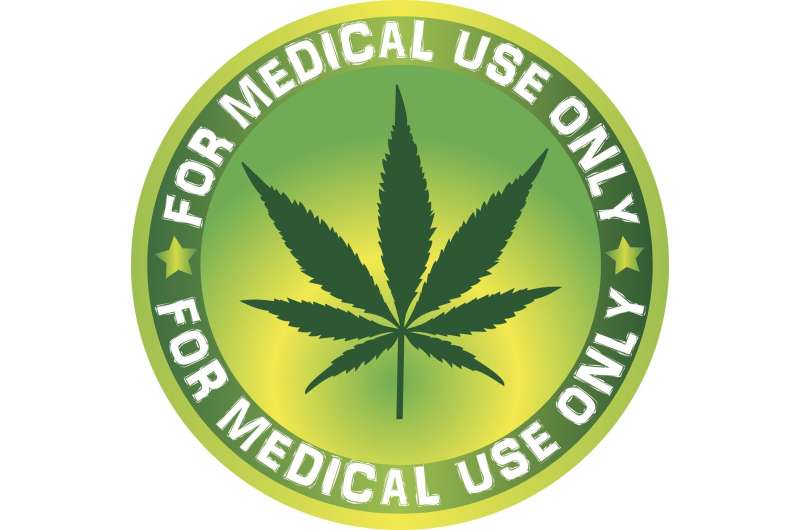Potential Risks of Medicinal Cannabis: Psychosis and Child Poisonings

Recent reports highlight concerns about the safety of medicinal cannabis, including its link to psychosis and accidental poisonings in children. Learn about the risks and regulatory oversight.
Recent investigations highlight significant concerns regarding the safety of medicinal cannabis, particularly its potential to induce psychosis and cause accidental poisonings in children. Over the past three years, Australia's medicines regulator, the Therapeutic Goods Administration (TGA), received reports of more than 600 adverse events linked to unapproved medicinal cannabis products. These included over 50 cases of psychosis and 14 instances involving suicidal thoughts and behaviors. However, it's important to note that most adverse events go unreported, suggesting these figures might underestimate the true extent of the risks.
Research published earlier this year shows an increase in calls to Australia's largest poison control center related to cannabis poisoning, especially among children. This rise is associated with accidental ingestions and dosing errors related to concentrated cannabis products like oils and edibles, which often resemble regular food items. Baby and child exposure to cannabis can lead to severe health outcomes, including coma and seizures, often requiring intensive medical intervention.
Most medicinal cannabis used in Australia involves unapproved products, which have not undergone rigorous assessment for quality or safety by the TGA. Despite this, such products remain legally accessible, and over 1,000 different unapproved formulations are available nationwide. These products are frequently used for conditions like pain, anxiety, and sleep, despite limited evidence supporting their efficacy for these purposes.
The legalization of medicinal cannabis in Australia in 2016 led to a sharp rise in use, particularly among young men. Although cannabis containing THC is generally not recommended for individuals with a history of psychiatric disorders due to its association with mental health issues, it continues to be prescribed under certain conditions.
Concerns about the mental health impact of cannabis are longstanding and have been amplified by global policy shifts towards legalization. Studies have reported increased rates of first-episode psychosis and schizophrenia following cannabis legalization in countries like Canada. Additionally, emergency department visits related to cannabis-induced anxiety are rising, although causality remains unclear.
Drug interactions pose further risks, as cannabidiol (CBD), a common component of medicinal cannabis, can interact with numerous medications including epilepsy treatments, antidepressants, opioids, and blood thinners. This underscores the importance of consulting healthcare professionals before initiating medicinal cannabis use.
In Australia, monitoring systems reveal a rise in poisonings related to concentrated cannabis and edible products, with children being particularly vulnerable. Tasty cannabis-infused foods can easily be mistaken for regular treats, leading to accidental ingestion and severe health complications.
Regulatory bodies like the Australian Health Practitioner Regulation Agency are scrutinizing prescribing practices, noting an increase in the number of practitioners issuing large volumes of prescriptions via telehealth, often with minimal consultation time. This has prompted calls for stricter oversight and adherence to best-practice guidelines.
For individuals considering medicinal cannabis, a thorough consultation with a qualified healthcare provider is essential. Patients should understand the potential risks, benefits, and drug interactions, and keep their medication out of reach of children to prevent accidental poisonings.
Stay Updated with Mia's Feed
Get the latest health & wellness insights delivered straight to your inbox.
Related Articles
Research Shows Permanent Standard Time Could Improve Americans' Health
A recent study reveals that adopting permanent standard time could significantly improve public health by aligning circadian rhythms, reducing cases of stroke and obesity across the U.S.
FDA Issues Updated Warning on Heart Risks Associated with Pfizer and Moderna COVID-19 Vaccines
The FDA has updated warnings for Pfizer and Moderna COVID-19 vaccines to highlight rare risks of myocarditis and pericarditis, especially in young males, based on new safety data.
Preventing Postoperative Delirium: Low-Cost Strategies to Protect Brain Health
New research reveals that postoperative delirium, a common complication in older surgical patients, is preventable through simple, low-cost interventions that can improve outcomes and reduce healthcare costs.



